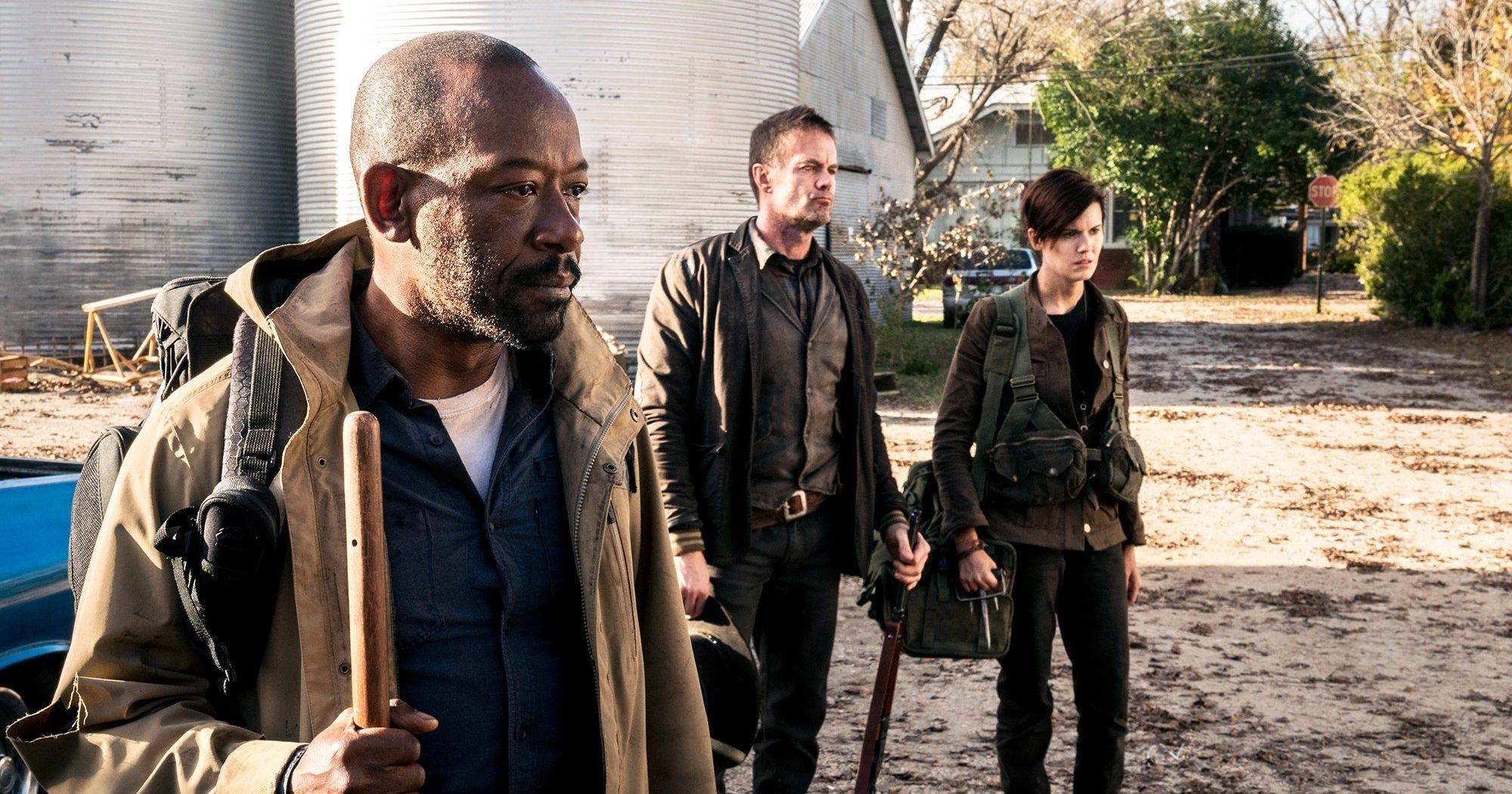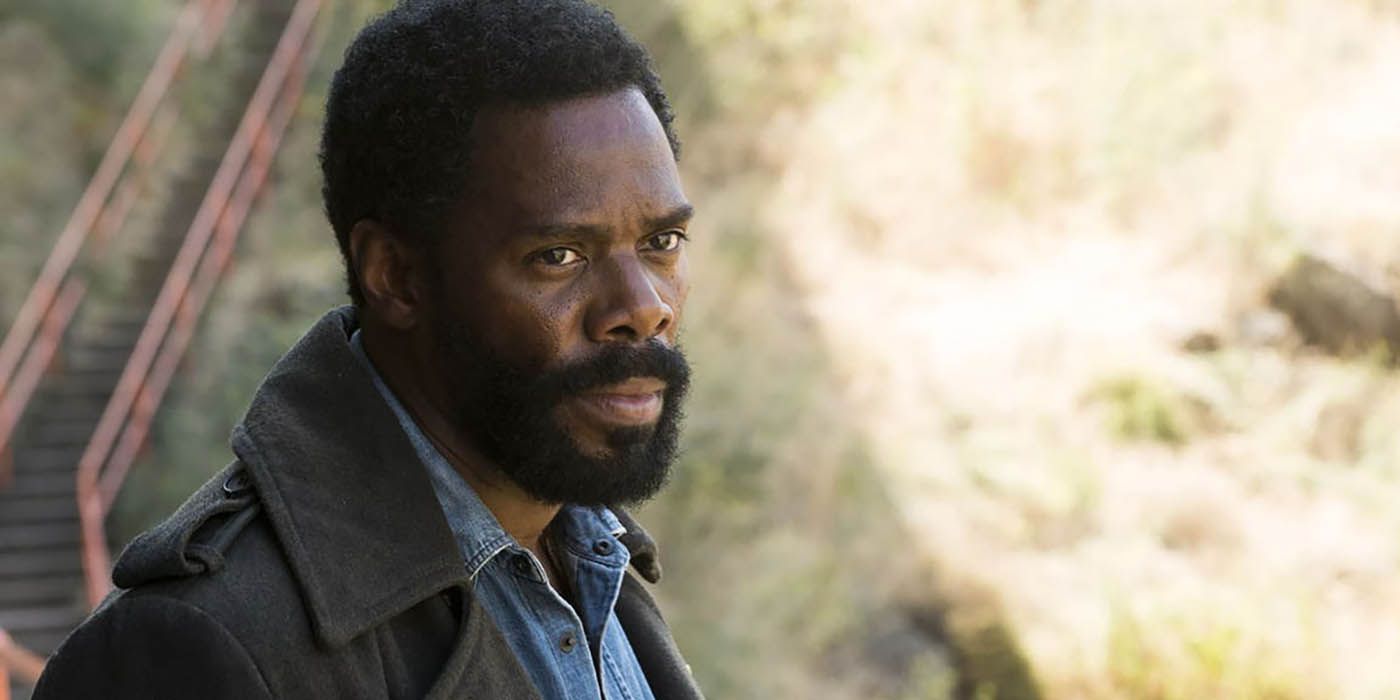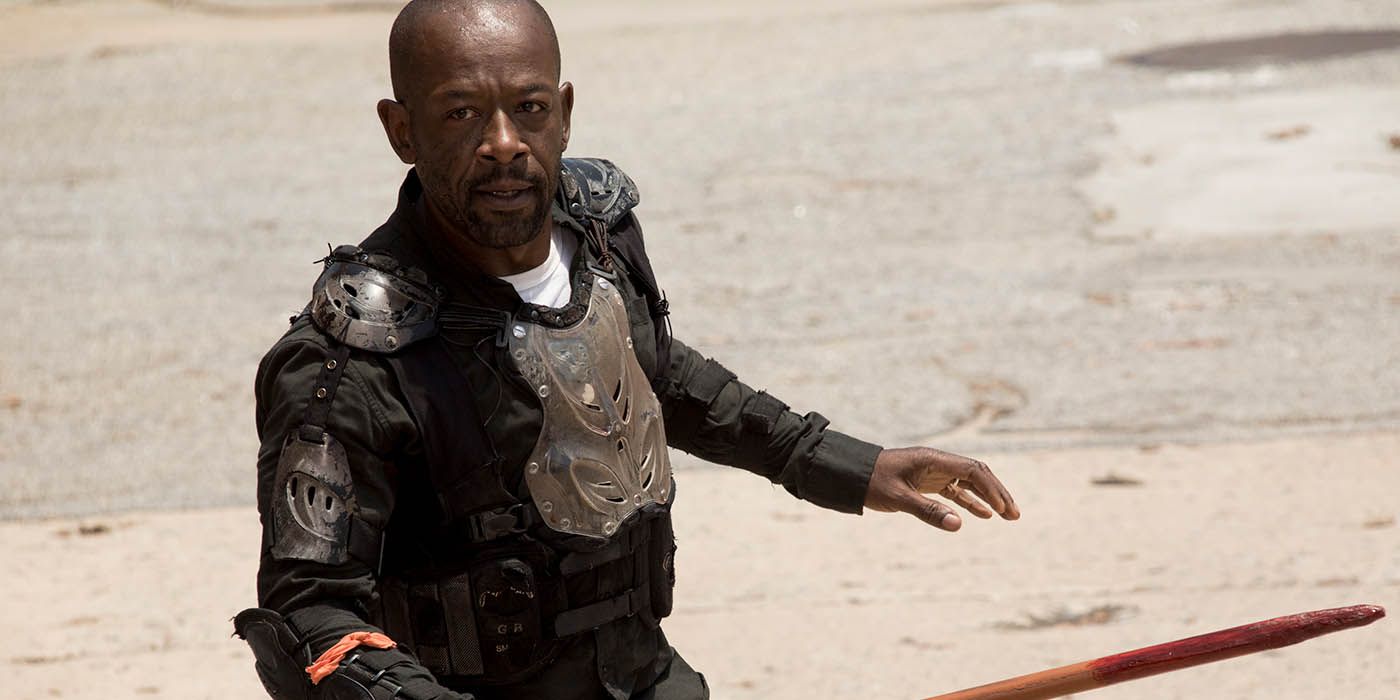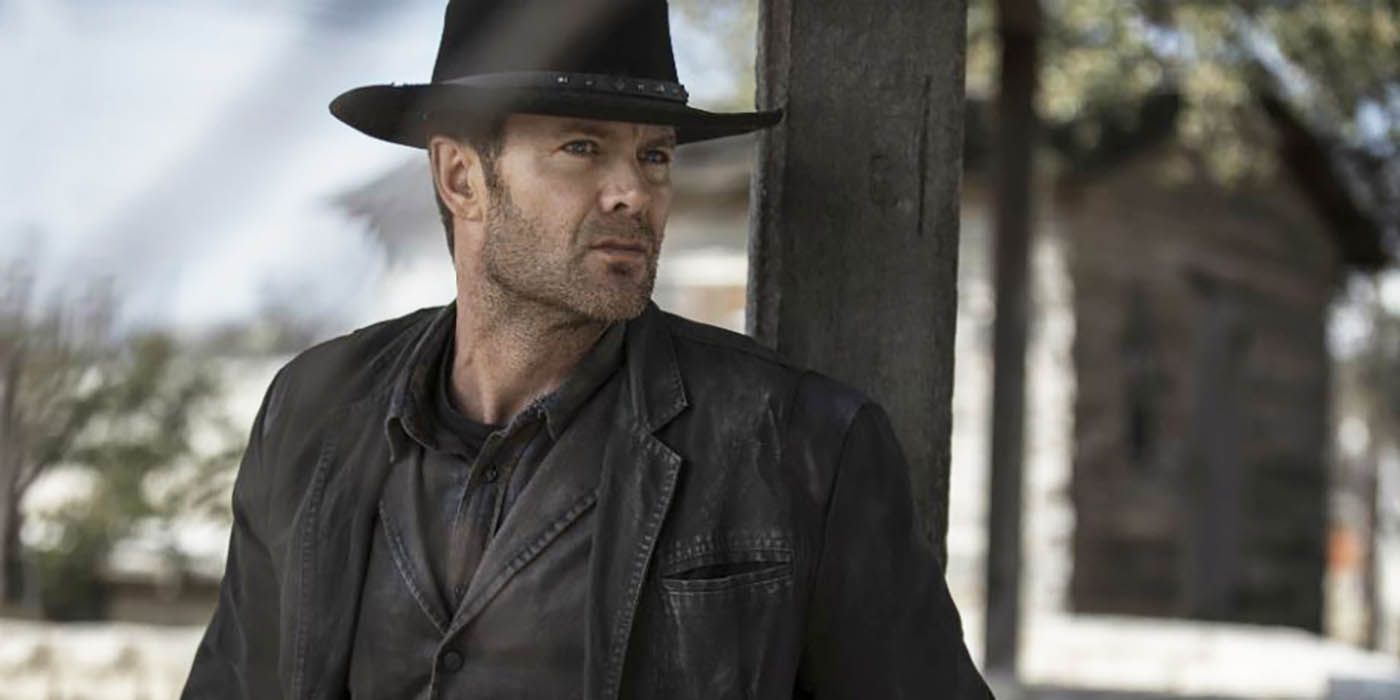Everyone typically fits into a certain Myers-Briggs® type, an assessment that describes someone's general personality, including how they relate to others and react to situations. When it comes to Fear the Walking Dead characters, one has to wonder - would they fall into the same personality post-apocalypse that they would have before the walker takeover?
We really only got to know many of the characters on the series after the world had been turned upside down, and bodies were being eaten inside out. But perhaps the personalities they exhibit now are true representations of who they really are? Indeed, in many cases, we can see glimpses of their previous life evident in the way they handle the new world order. With that being said, and as we anticipate the upcoming fifth season premiere on June 2, here are the MBTI®'s of the surviving, main, and new characters on Fear the Walking Dead.
Alicia Clark - ESTP
At the beginning of the series, one might have considered Alicia to be the timid type, relegated to being quiet and hiding in her troubled brother’s shadow, wondering if she'd ever actually get noticed, or be paid any attention to. But she’s emerged as a fearless leader, taking chances, making tough decisions, and showing a hardened side that her previous life experiences prepared her for, whether she realizes it or not.
Having had to grow up so early certainly turned Alicia into an ESTP, an extroverted person whose dominant traits include sensing, feeling, and perceiving. Often considered the entrepreneur personality, the ESTP type totally fits Alicia, who focuses on getting things done based on logic over social considerations (thinking), trusts her gut (sensing), and is very perceptive as to the things going on around her. She isn’t afraid to take risks, even if it means breaking the rules now and then.
Victor Strand - ENTJ
A pre-apocalypse con man (and, one might argue, a post-apocalyptic one, too), Strand is outspoken, confident, and deeply charming, able to communicate with just about anyone, and transform like a chameleon in any given situation. That makes him fit perfectly into the ENTJ personality type, otherwise known as the "commander" personality.
Highly intelligent, he also knows how to manipulate people, and is a fantastic leader - a common characteristic of ENTJ types. And he’s also a problem-solver, even if his methods aren't always acceptable. Typical to ENTJ types, Strand puts her personal needs above all else. But deep down, he does care about others, even if he views himself as priority number one.
Luciana Galvez – ESFJ
She was laser-focused on caring for her people when she met Nick, then focused on caring for him. Typical to an ESFJ type, often referred to as the "consul type," the guardians or providers, she feels a sense of duty to protect others. and she has a soft side, part of the "feeling" personality trait, which sees her look at personal considerations, not just objective criteria.
This is seen when she breaks down after Madison’s death and the takeover of the baseball stadium, and acts with rage in order to get revenge. Nonetheless, she’s there to serve with whatever the group needs, and sometimes wears her heart on her sleeve.
Daniel Salazar – ESTJ
Just like an executive, which is the name typically given to those with an ESTJ personality, Salazar can scan any room or situation he’s in and make a practical decision by observing and analyzing what’s going on, reading people, and assessing risks.
Set in his ways about how things should be done, which comes from the judgment trait of ESTJs who like to plan and have control, he’s loyal to his family (and his group of survivors), hard-working, and happily takes the reins any chance he gets. He's a born leader who can sit on the sidelines until it's time to strike.
Morgan Jones – INFP
As the most introspective of the characters, having moved over to this series from his long-running role on The Walking Dead, Jones experiences constant inner conflict as he struggled with the murderous needs of living in the current state of society with his desire to maintain a level of humanity. This makes him a clear INFP, or intuitive, ethical introvert. Even if he does indeed have some extroverted qualities, his decision to leave the group in The Walking Dead and his desire to wander alone shows his introversion.
More so than anything, he’s intensely reflective and prophetic, staunchly sticks to his morals and values, and takes any opportunity he can to help others, even if it’s to his own detriment. He's a feeler, focused on how actions can impact people, not the logic behind them. For example, while it's logical to think that you must kill an enemy who is trying to kill you, living or dead, Morgan would rather focus on perception than judgment, and live with the hope that this person can be tamed, and peace can be had.
Althea – ESTJ
Like Daniel, Althea is a practical realist, a key trait among ESTJs. And while she isn't quite as ruthless as he, she does feel a similar sense of duty to her profession. Even though the world has practically ended, she still focuses on getting stories on film from everyone she meets so it's documented in the event that the world somehow survives.
The tapes will serve as an important historical reference for the new world, in her eyes, providing the real stories of what happened, and the people it happened to. It's part of the control she so requires as somehow who focuses on judgment. It’s fiercely important to her that the real stories are told, and she fulfills her duty as a reporter. She thinks practically and wants quiet security. But she isn’t afraid to take charge and step up to the plate if needed.
John Dorie – ENFJ
Dorie perfectly personifies the “giver” and protagonist personality type, always putting the needs of others above his own, and being concerned about other peoples’ feelings and desires. Consider that not only did he visit a local convenience store weekly and only take what he wanted, even though he was likely the only person to ever go there, but he also continued to sign out movies each time he rented them – a consistent part of his everyday ritual.
Thriving when he's around others, he finds it hard to spend time alone, delving into sad and lonely thoughts whenever he's faced with solitude. Typically, teachers fall into the ENFJ MBTI classification. Like teachers, John is motivated by his interactions with others, likes to have a wide group of people around him, and focuses on the future rather than what's right in front of him - like stockpiling hard candies to hand out to those he meets along the way.
June – INFJ
As a nurse before the world went to heck, June always put the needs of others before her, has a deep desire to help others, and great intuition, a quality common among those in the nursing profession as well as of those who fall into the INFJ classification.
Events in the apocalypse led to her testing her true beliefs and value systems, and becoming more of a lone wolf who convinced herself she wanted to be alone in order to avoid hurting or losing people. But deep down, she just wants to do the right thing, and protect the people she loves, even if it hurts her in the process. In that sense, she is similar to Morgan in some ways, though she tried harder to fight the feelings and intuition sides of her.
Charlie - ISTJ
It’s difficult to assess someone so young who has been through so much, but Charlie appears to be the logical sensory introvert, who wants to live in a well-regulated world but just struggles with figuring out what that means given the world she lives in. Charlie is a quiet and introverted, responsible, and dependable girl who relies on whoever is loyal to her to steer her in the right direction. Her moral compass tells her that everyone else is the “bad guy.”
Even if her protectors are clearly evil, they are just trying to survive as she is. She tells herself that she’s doing things to accomplish a goal, putting her own feelings aside (or at least trying to). In this way, ISTJs are often considered worker bees. When she puts her mind to a task, liking killing the person who killed her protector, she makes sure she achieves it.
Dwight - ISTP
Dwight hasn’t yet appeared in the series, but he’s set to cross-over in the upcoming fifth season. However, we’ve known him for some time from his role on The Walking Dead, and know that he was able to detach himself from who he used to be in order to become the person that Negan needed him to be and save his life and that of his wife's. This is typical of an ISTP personality type, who are highly adaptable to situations at hand. It was all in the name of survival, of course. But Dwight became so loyal to Negan that he left his own values behind.
Despite this, it was clear he still cared deeply about his wife and felt remorse for the things he was doing once he snapped back to his true self and realized how much of that self he had lost. But, as with the ISTP types, he excelled in high-pressure situations, and even though he once got half his face burned off for disappointing Negan, he found solutions to his own problems.











